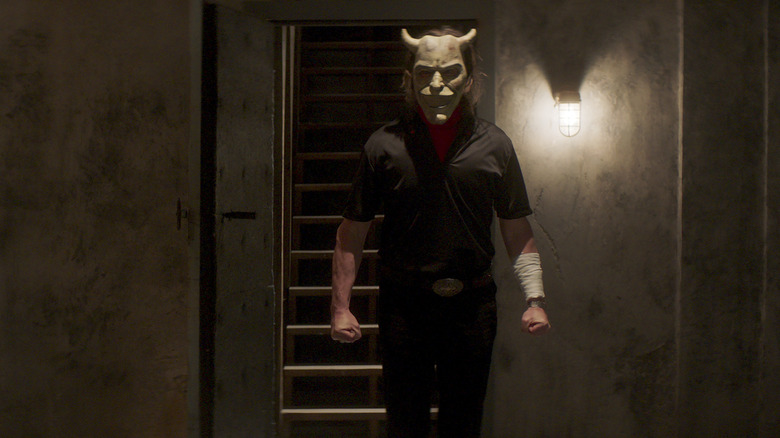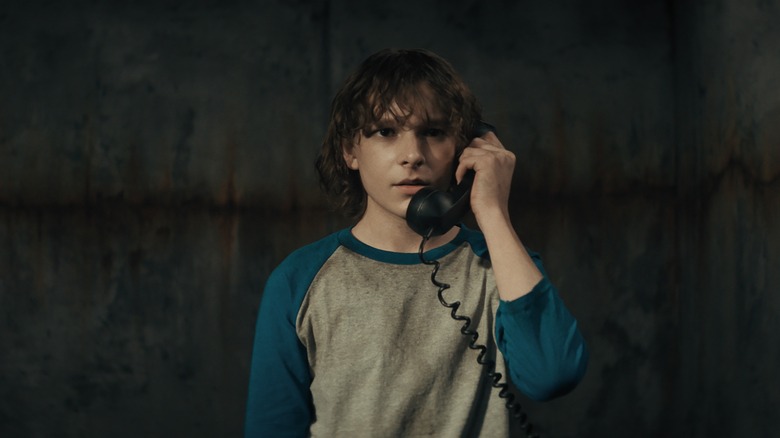The Black Phone Ending Changed At The Last Minute
The movie gods work in mysterious ways. Writers and directors commonly describe the filmmaking process as one where the needs of the story demand their next steps. This has led to airtight scripts that were locked in months or even years in advance, without a single change along the way ... or it has resulted in last-minute bursts of creativity and inspiration, steering the production in exactly the direction it always needed to go. One can simply never know how things may unfold on any given project.
The recent horror flick, "The Black Phone," owes quite a bit to moments of serendipity on its way to becoming a solid hit at the box office this past weekend. For one thing, the way that the creative partnership between director Scott Derrickson and C. Robert Cargill first formed, thus making this adaptation possible in the first place, needs to be read to be believed. For another, the pair's amicable parting of ways with Marvel on the "Doctor Strange" sequel directly led to their collaboration on this project, as well.
Fortune didn't just smile on "The Black Phone" before production ever started, however. As it turns out, a crucial but subtle grace note taking place towards the end of the film only came about during shooting — and required a bit of logistical gymnastics to properly pull off. For those who haven't yet seen Derrickson and Cargill's latest film in theaters, turn away now lest you risk major spoilers. For those who have, I'll see you down below.
'a good director always has an antenna up trying to hear what this movie really wants to be'
Adapted from Joe Hill's original short story, "The Black Phone" tells the story of young Finney (Mason Thames) fighting to get free from the sinister clutches of The Grabber (Ethan Hawke) while trapped in a secluded basement. Only a mysterious black phone mounted on a wall and the urgent voices of The Grabber's past victims on the other end provide any hope for escape. We're introduced to one such victim, Robin (Miguel Cazarez Mora), early on in the film as he urges Finney to stand up for himself against bullies. He reappears late in the story for a much-needed boost in morale, both over the phone and present in the room (in spirit, at least), but that moment almost never even happened. According to Derrickson in an interview with THR,
"In the script, Robin wasn't in the room. It was just a phone call. A day or two before we shot that ... it suddenly hit me out of nowhere. I was like, 'Oh, the audience wants to see that kid again. We got to see him again. It's not going feel right if we don't see him again.' I was like, 'Where's that kid?' and they were like, 'We just flew him home.' I was like, 'Get him back. You got to fly him back.'"
The quietly effective scene easily proves the wisdom of Derrickson's intuition. He goes on,
"I end up doing it all in one shot. I think a good director always has an antenna up trying to hear what this movie really wants to be. If you do that, you can sometimes make decisions that are bigger than you."
"The Black Phone" is currently playing in theaters.

